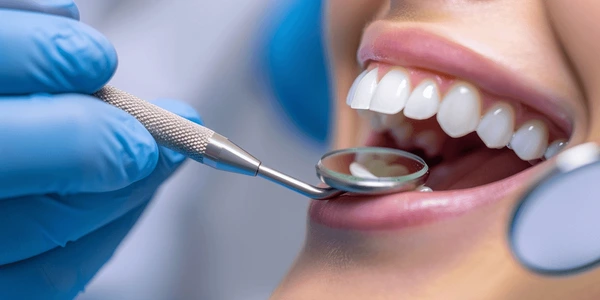Bright Smiles, Strong Teeth: to Dental Health
Maintaining good dental health isn’t just about having a white smile—it’s a crucial part of your overall well-being. Your teeth and gums affect your ability to eat, speak, and even impact your confidence. More importantly, poor oral health has been linked to serious medical conditions like heart disease, diabetes, and respiratory infections.
Yet, many people underestimate the importance of daily dental care and regular visits to the dentist. In this comprehensive guide, you’ll learn everything you need to know about dental hygiene—from brushing techniques to foods that boost oral health and the habits that might be silently damaging your teeth.
Let’s dive into how to achieve a healthy, radiant smile that lasts a lifetime.
Why Dental Health Matters
Dental health goes beyond preventing cavities and freshening your breath. The condition of your teeth and gums can signal or even influence the state of your body.
Here’s why oral health is so important:
Prevents tooth decay and gum disease: Brushing, flossing, and regular cleanings reduce plaque buildup.
Boosts self-confidence: A healthy smile enhances your appearance and how others perceive you.
Reduces risk of chronic diseases: Poor oral health is linked to heart disease, diabetes, and even Alzheimer’s.
Protects your overall quality of life: Missing or painful teeth can limit your food choices and nutrition.
Think of your mouth as a gateway to the rest of your body. Taking care of it is an investment in your overall health.

Common Dental Issues to Watch For
To maintain strong oral health, you need to recognize the warning signs of common problems:
1. Tooth Decay (Cavities)
Caused by plaque and bacteria eating away at the enamel. Often painless at first but can lead to severe toothache if untreated.
2. Gum Disease (Gingivitis/Periodontitis)
Inflammation of the gums that can lead to tooth loss. Symptoms include swollen, bleeding gums and bad breath.
3. Tooth Sensitivity
Pain or discomfort when eating hot, cold, or sweet foods. Usually caused by enamel erosion or gum recession.
4. Bad Breath (Halitosis)
Can result from poor oral hygiene, dry mouth, infections, or certain foods.
5. Tooth Grinding (Bruxism)
Often caused by stress or misaligned teeth. Can lead to headaches, jaw pain, and worn-down teeth.
Knowing what to look out for helps you address issues before they become serious.
Daily Habits for Better Oral Hygiene
The foundation of dental health lies in daily care. These basic habits may seem simple, but they have a major impact on preventing decay and disease.
1. Brush Twice a Day (Properly!)
Brush your teeth for two full minutes, twice daily. Use a fluoride toothpaste and soft-bristled toothbrush to avoid damaging your gums and enamel.
Brushing Tips:
Use gentle circular motions.
Tilt the brush at a 45-degree angle to the gum line.
Don’t brush too hard — it doesn’t make teeth cleaner!
2. Floss Once a Day
Flossing removes food particles and plaque between teeth where a brush can’t reach.
Tip: If traditional floss is difficult, try floss picks or water flossers.
3. Use Mouthwash
An antibacterial rinse can help reduce plaque, kill bacteria, and freshen breath. Choose one with fluoride for extra protection.
4. Clean Your Tongue
Use a tongue scraper or your toothbrush to clean your tongue. It reduces bacteria and keeps your breath fresh.
5. Replace Your Toothbrush
Change your toothbrush (or brush head, if electric) every 3 months or sooner if the bristles fray.
Eat Smart for Healthy Teeth
Your diet plays a major role in dental health. Certain foods help strengthen teeth and prevent cavities, while others promote decay.
Eat More of These:
Calcium-rich foods: Milk, cheese, yogurt, almonds.
Crunchy fruits/veggies: Apples, carrots, celery help clean teeth naturally.
Leafy greens: Kale, spinach provide vitamins and minerals for gum health.
Green tea: Contains antioxidants that fight inflammation and bacteria.
Water: Flushes away food and neutralizes acids in your mouth.
Limit These:
Sugary snacks/drinks: Fuel bacteria that cause decay.
Acidic foods/drinks: Citrus fruits, soda, and sports drinks can erode enamel.
Sticky sweets: Like caramel or gummy candies — they cling to teeth and promote decay.
Pro tip: If you eat something sugary or acidic, rinse your mouth with water right afterward.
Visit Your Dentist Regularly
No matter how well you brush and floss, you still need professional check-ups. Dentists can catch problems early and clean spots you miss.
How often should you go?
At least twice a year for most people.
More frequently if you have gum disease, braces, or other ongoing issues.
What happens during a dental visit?
Deep cleaning and polishing.
X-rays to detect cavities or bone loss.
Oral cancer screening.
Personalized advice on brushing/flossing.
Regular visits also help reduce dental anxiety, since you’ll be familiar with the process and build trust with your provider.

Lifestyle Habits That Harm Your Teeth
Sometimes, it’s not what you’re doing — but what you should stop doing — that makes the biggest difference.
1. Smoking and Vaping
Tobacco stains teeth, damages gums, and increases your risk for oral cancer.
2. Biting Nails or Chewing Ice
These habits can crack or chip your teeth and strain your jaw.
3. Using Teeth as Tools
Don’t open packages, cut tape, or pop bottles with your teeth. It weakens the enamel and can lead to breakage.
4. Skipping Brushing Before Bed
When you sleep, your saliva production drops. This gives bacteria a better chance to multiply. Always brush before sleeping.
5. Brushing Right After Eating
Wait 30 minutes after meals (especially acidic ones) to brush. Brushing too soon can actually wear down softened enamel.
Children’s Dental Health: Start Early
Healthy habits begin young. Teaching your kids good dental hygiene sets them up for lifelong oral health.
Tips for parents:
Start brushing as soon as the first tooth appears.
Use a rice-sized amount of toothpaste for toddlers.
Make brushing fun with songs, stickers, or apps.
Avoid sugary drinks in bottles or sippy cups.
Schedule their first dental visit by age 1.
Children who grow up with healthy routines are far less likely to suffer from cavities and dental fear as adults.
The Link Between Dental Health and Overall Health
Oral health doesn’t exist in a vacuum. Studies show that bacteria from the mouth can enter the bloodstream and contribute to:
Heart disease
Stroke
Diabetes complications
Pregnancy issues like preterm birth
Respiratory infections
That’s why maintaining good dental hygiene isn’t just cosmetic—it’s a critical part of staying healthy.
5 Frequently Asked Questions (FAQs) About Dental Health
1. How often should I really visit the dentist?
Most people should visit the dentist twice a year for cleanings and check-ups. However, if you have gum disease, braces, or frequent dental issues, you may need to go more often.
2. Is it better to use an electric or manual toothbrush?
Both can be effective, but electric toothbrushes often remove more plaque and are easier to use correctly, especially for people with limited mobility or braces.
3. What’s the best way to whiten my teeth safely?
Over-the-counter whitening strips or dentist-supervised whitening are safe options. Avoid DIY remedies like baking soda or lemon juice — they can erode enamel over time.
4. Can dental problems really affect my heart?
Yes. Gum disease has been linked to an increased risk of heart disease. Bacteria from the mouth can enter the bloodstream and contribute to inflammation in other parts of the body.
5. What age should children start going to the dentist?
Children should visit a dentist by their first birthday or within six months of getting their first tooth, whichever comes first.
Final Thoughts: A Healthy Smile Is a Daily Commitment
Your dental health is a reflection of your daily habits — not just what you do at the dentist’s office twice a year. With the right brushing, flossing, diet, and regular check-ups, you can prevent most oral health issues before they start.
Remember: small steps add up. Whether you’re teaching your child how to brush or making the switch from soda to water, every choice contributes to a healthier, brighter smile.
Take care of your teeth, and they’ll take care of you — for a lifetime.
